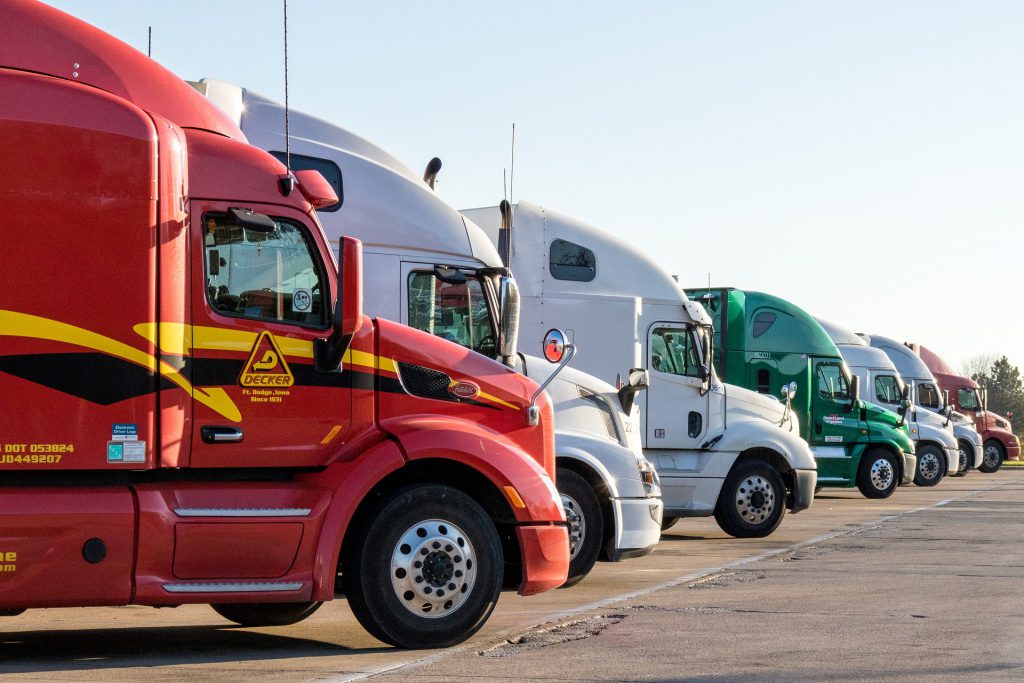There Isn’t a Truck Driver Shortage?
All the city news you can use.
Every day at The Overhead Wire we sort through over 1,500 news items about cities and share the best ones with our email list. At the end of the week, we take some of the most popular stories and share them with Urban Milwaukee readers. They are national (or international) links, sometimes entertaining and sometimes absurd, but hopefully useful.
The truck driver shortage doesn’t exist: Alana Samuels argues there isn’t a truck driver shortage, but rather a turnover problem. 9 out of 10 drivers leave companies within the first year and complain of terrible pay and working conditions that ultimately lead to that turnover. For example in California there are 640K people with commercial driver’s licenses but only 140K driving jobs. (Alana Semuels | Time Magazine)
Mental health important for overwhelmed environmentalists: There’s a big toll that environmental activism takes on mental health as people deal with the repeated trauma of damaged ecosystems and slow progress. As such, it’s necessary for people to take time to care for themselves before the stress takes over and burns people out or worse, thier despair and hopelessness gets the better of them. (Alex Smith | NPR)
Glow in the dark materials will someday light our cities: Certain materials have the ability to trap photons during the day and release them at night, creating a luminous surface. Researchers at the University of Perugia in Italy are researching this potential for luminous pavement, especially since 1.6% of all energy used in Europe is for street lights. Researchers see this as an opportunity for cities to look at how to use glowing surfaces to reduce heat island effects and the need for street lights while also increasing safety. (Kurt Kleiner | Knowable Magazine)
The ways in which automobility shapes our lives: New research in the Journal Mobilities takes a look at the violence of automobility, not from the view of the car, but the places you can be killed without it being deemed a homicide. It also shows how culture dominating automobility is in our advertising, in our markets, in museums. Ultimately they say, car culture redefines what deaths are acceptable, erases its own violence, convinces us the future solution is cars, and convincing people individuals are responsible for the structural problems created by cars. (Kea Wilson | Streetsblog USA)
Quote of the Week
Yet to achieve transportation equity, the bulk of funding —- and even projects funded through these new grant programs — will require significant change in how state departments of transportation, transit agencies, metropolitan planning organizations and localities prioritize funding requests, design projects, and involve community especially those who are most impacted and that have been historically underrepresented.
–Mariia Zimmerman at the MZ Strategies Blog discussing the potential but not certainty of equity in spending from the new infrastructure bill.
This week on the podcast, Kelcie Ralph, Nick Klein, and Calvin Thigpen, talk about their recent paper “Political Partisanship and Transportation Reform” written with Anne Brown in the Journal of the American Planning Association.
Want more links to read? Visit The Overhead Wire and signup.
Urban Reads
-
Congestion Pricing Cuts Air Pollution in New York City
 Dec 14th, 2025 by Jeff Wood
Dec 14th, 2025 by Jeff Wood
-
We Think We Love to Drive. But Do We Really?
 Dec 7th, 2025 by Jeff Wood
Dec 7th, 2025 by Jeff Wood
-
Can Scott Wiener Tackle America’s Housing Crisis?
 Nov 23rd, 2025 by Jeff Wood
Nov 23rd, 2025 by Jeff Wood





















